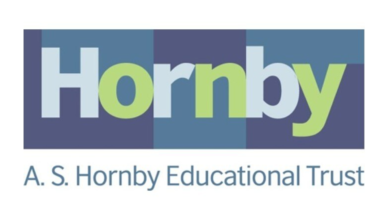University of Sydney Australia Postgraduate Research Scholarship 2025 in Bioethics and Health Law
The University of Sydney Postgraduate Research Scholarship 2025 in Bioethics and Health Law offers an exceptional opportunity for students to engage in groundbreaking research at one of Australia’s leading universities. This prestigious scholarship is designed to support outstanding candidates pursuing a research degree in the interdisciplinary fields of bioethics and health law, equipping them to address complex ethical and legal issues in modern healthcare and biomedical research.
With a focus on advancing knowledge and fostering innovative solutions to contemporary challenges, the scholarship provides financial support, academic mentorship, and access to world-class research facilities at the University of Sydney. This article explores the scholarship’s benefits, eligibility criteria, application process, and the broader significance of studying bioethics and health law in today’s rapidly evolving healthcare landscape.
About the University of Sydney
The University of Sydney, established in 1850, is Australia’s oldest and one of its most prestigious institutions of higher education. Located in Sydney, New South Wales, the university is renowned for its commitment to academic excellence, research innovation, and global impact.
Ranked among the top 50 universities worldwide, the University of Sydney is a hub for cutting-edge research, fostering interdisciplinary collaboration to address the world’s most pressing challenges. The Faculty of Medicine and Health and the Sydney Law School have a strong tradition of leadership in health policy, bioethics, and legal studies.
The Postgraduate Research Scholarship in Bioethics and Health Law reflects the university’s dedication to nurturing talent and advancing knowledge in critical fields that shape global health and legal systems.

Scholarship Overview
The Postgraduate Research Scholarship supports research in the interdisciplinary areas of bioethics and health law. These fields explore the ethical, legal, and social implications of healthcare delivery, medical research, and emerging technologies, such as genomics, artificial intelligence, and biotechnology.
Key Highlights:
- Host Institution: University of Sydney, Australia
- Level of Study: Postgraduate Research (Master’s or PhD)
- Fields of Study: Bioethics and Health Law
- Duration: Up to 3.5 years for PhD programs (full-time)
- Scholarship Type: Fully funded (tuition fees and stipend)
- Application Deadline: Varies (Check official website for specific dates)
- Target Group: Domestic and international students
Benefits of the Scholarship
The University of Sydney Postgraduate Research Scholarship offers comprehensive financial and academic support to ensure recipients can focus on their research and professional development. The key benefits include:
- Full Tuition Fee Coverage:
- The scholarship covers the full tuition fees for the duration of the research program, reducing the financial burden on students.
- Living Stipend:
- Recipients receive a stipend of approximately AUD 35,000 per year (tax-free) to cover living expenses during their studies.
- Research Support:
- Funding for research-related expenses, including conference attendance, fieldwork, and publication costs.
- World-Class Supervision:
- Scholars benefit from guidance and mentorship by leading researchers in bioethics, health law, and related disciplines.
- Access to Cutting-Edge Facilities:
- The University of Sydney provides access to advanced research facilities, libraries, and collaborative networks.
- Career Development Opportunities:
- Scholars can participate in workshops, seminars, and networking events to enhance their research and professional skills.
Eligibility Criteria
To qualify for the Postgraduate Research Scholarship 2025 in Bioethics and Health Law, applicants must meet the following eligibility requirements:
Academic Requirements
- Applicants must hold a bachelor’s degree with first-class honors or equivalent qualifications.
- A relevant master’s degree with a significant research component (thesis) may also be considered.
Research Focus
- The proposed research must be related to the fields of bioethics, health law, or an interdisciplinary topic that addresses ethical and legal challenges in healthcare.
Language Proficiency
- International students must demonstrate proficiency in English through recognized tests such as IELTS (minimum score of 7.0) or TOEFL.
Enrollment Status
- Candidates must be willing to enroll full-time in a research degree (Master’s or PhD) at the University of Sydney.
Other Requirements
- Demonstrated ability to conduct independent research and a strong interest in bioethics and health law.
Areas of Research
The scholarship supports research on a wide range of topics within bioethics and health law, including but not limited to:
- Ethical and Legal Issues in Emerging Technologies:
- Artificial intelligence in healthcare
- Genomics and personalized medicine
- Biotechnology and synthetic biology
- Health Policy and Justice:
- Equity in healthcare access and delivery
- Ethical implications of global health policies
- Human Rights and Healthcare:
- Rights of patients and healthcare providers
- Privacy and data protection in medical research
- End-of-Life Ethics and Decision-Making:
- Euthanasia and palliative care
- Legal frameworks for advance care planning
- Public Health Law:
- Legal responses to pandemics and infectious diseases
- Ethical considerations in vaccination and public health campaigns
Application Process
The application process for the University of Sydney Postgraduate Research Scholarship 2025 involves several steps. Interested candidates should follow these guidelines:
Identify a Supervisor
- Contact potential supervisors at the Sydney Law School or the Sydney School of Public Health to discuss research interests and obtain their support for your application.
Prepare Application Documents
Applicants must prepare the following documents:
- A research proposal (2-4 pages) outlining the research topic, objectives, methodology, and potential contributions.
- Academic transcripts and degree certificates.
- Proof of English language proficiency (for international students).
- A current CV or resume.
- Two letters of recommendation from academic referees.
Submit Online Application
- Apply for admission to the University of Sydney’s research degree program through the online application portal.
- Indicate your interest in the Postgraduate Research Scholarship during the application process.
Interview
- Shortlisted candidates may be invited for an interview to discuss their research proposal and suitability for the scholarship.
Notification
- Successful applicants will receive a formal offer letter, including details of the scholarship award.
Visit the official website
Key Dates and Deadlines
| Event | Date |
|---|---|
| Scholarship Application Opens | 24 October 2024 |
| Application Deadline | 7 February 2025 |
| Notification of Results | June – August 2025 |
| Program Start Date | September/October 2025 |
Applicants are encouraged to check the University of Sydney’s official website for updated deadlines and program-specific requirements.
Why Study Bioethics and Health Law at the University of Sydney?
- Interdisciplinary Excellence:
- The University of Sydney is a leader in bioethics and health law, combining expertise from medicine, public health, and law to address critical global challenges.
- World-Renowned Faculty:
- Scholars work alongside leading academics and practitioners in health ethics, medical law, and public policy.
- Global Research Impact:
- The university’s research addresses real-world issues, contributing to global debates on healthcare ethics and justice.
- Career Opportunities:
- Graduates can pursue careers in academia, healthcare policy, law, government agencies, and international organizations.
- Supportive Research Environment:
- Scholars benefit from mentorship, collaboration, and access to cutting-edge resources.
For more information








